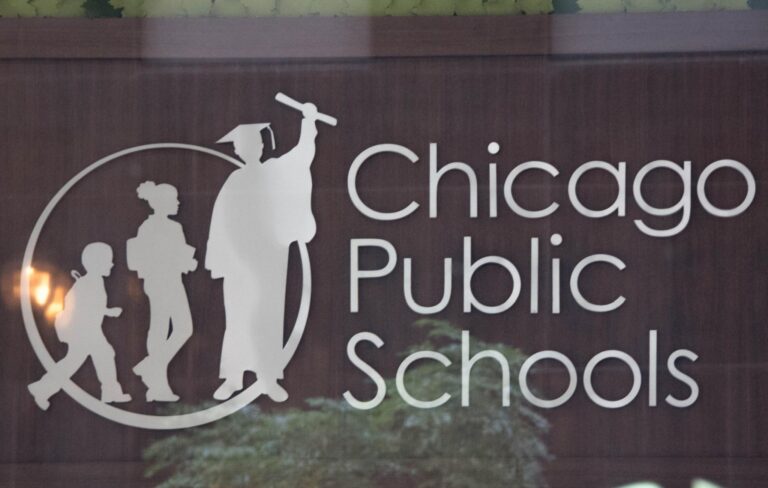Chicago Public Schools Faces Junk Credit Rating: Financial Strains and Educational Implications
Financial Fallout of Chicago Public Schools’ Credit Downgrade
Chicago Public Schools (CPS), one of the largest school districts in the United States, has recently been downgraded to a junk credit rating, signaling a severe financial crisis. This downgrade translates into higher borrowing costs and casts doubt on the district’s capacity to sustain critical educational programs and services.The loss of investor confidence restricts CPS’s ability to secure affordable financing, potentially delaying infrastructure projects and forcing challenging budgetary decisions that could affect classroom resources, extracurricular activities, and staff retention.
Major repercussions of the credit downgrade include:
- Escalating Interest Expenses: CPS will likely face a 2% to 4% increase in interest rates on new debt, straining debt repayment budgets.
- Lower Demand for Bonds: Investor reluctance may limit CPS’s access to capital markets, hindering future facility upgrades and expansions.
- Program Reductions: Essential services such as special education and after-school programs risk budget cuts amid tightening finances.
- Deferred Maintenance: Aging school buildings may experience prolonged delays in repairs and modernization efforts.
| Area Affected | Projected Impact |
|---|---|
| Borrowing Costs | Interest rates increase by 2%-4% |
| Capital Investments | Delays or cancellations likely |
| Student Programs | Cuts to non-essential services |
| Staffing | Hiring freezes and attrition management |
Root Causes: Financial Missteps and Structural Deficits Undermining CPS
The downgrade reflects deep-seated financial challenges rooted in years of fiscal mismanagement and persistent structural deficits.CPS has repeatedly faced budget shortfalls,often resorting to temporary fixes rather than lasting fiscal reforms. Overly optimistic revenue forecasts combined with underestimated expenditures have exacerbated the district’s financial instability. Additionally, CPS’s reliance on volatile funding streams has weakened its ability to meet financial obligations promptly, eroding trust among investors and rating agencies.
Key contributors to the credit downgrade include:
- Annual budget deficits consistently exceeding $100 million
- Growing pension obligations without sufficient funding strategies
- Delayed payments to vendors, damaging operational credibility
- Minimal reserve funds, leaving CPS vulnerable to economic downturns
| Fiscal Year | Budget Deficit (in $ millions) | Reserve Fund as % of Budget |
|---|---|---|
| 2021 | 120 | 2.0% |
| 2022 | 150 | 1.5% |
| 2023 | 180 | 0.8% |
These ongoing fiscal weaknesses jeopardize CPS’s financial health and raise serious concerns about its long-term sustainability. Without extensive reforms and innovative revenue solutions, the district risks further credit downgrades that could severely limit its ability to invest in educational infrastructure and resources.
Voices from the Community: Calls for Clarity and Accountability
In response to the credit rating downgrade, parents, educators, and community advocates have expressed meaningful apprehension about the future of Chicago’s public education system. Many are worried about the direct effects on classroom quality and student support services. At recent public forums, teachers and parents have demanded greater transparency from CPS leadership, seeking detailed explanations and actionable plans to address the financial crisis without sacrificing educational standards.
Community priorities include:
- Consistent and clear financial reporting to rebuild trust
- A publicly accessible plan outlining corrective actions and timelines
- Inclusive budget discussions involving educators and families
- Safeguarding funding for critical student programs despite budget cuts
| Group | Primary Concerns | Requested Measures |
|---|---|---|
| Educators | Job security and classroom resources | Open budget discussions and financial literacy workshops |
| Parents | Impact on student programs and services | Regular updates and prioritization of resources |
| Community Leaders | Long-term fiscal health of CPS | Formation of oversight committees with stakeholder input |
Charting a Course: Strategies for Financial Recovery and Educational Excellence
Resolving CPS’s financial turmoil requires a comprehensive strategy that addresses immediate budgetary pressures while laying the groundwork for sustainable fiscal health. Key recommendations include:
- Strengthening Financial Governance: Implement rigorous transparency and accountability measures to restore confidence among investors and the public.
- Optimizing Expenditures: Conduct thorough reviews to eliminate non-essential spending while protecting frontline educational services.
- Expanding Revenue Sources: Pursue innovative funding avenues such as public-private partnerships, philanthropic grants, and community fundraising initiatives.
Maintaining educational quality alongside financial recovery is paramount. Strategies such as adaptive learning models and enhanced teacher retention programs, including competitive incentives, will be critical to sustaining student achievement. The table below compares the projected outcomes of these approaches over the next five years, providing a roadmap for policymakers and stakeholders.
| Strategy | Financial Benefit | Impact on Education | Implementation Timeline |
|---|---|---|---|
| Financial Oversight Reform | Significant cost savings | Moderate stability | 1-2 years |
| Cost Reduction Measures | Moderate savings | Variable effects | Immediate |
| New Revenue Generation | Additional funding streams | Supports program continuity | 2-5 years |
| Teacher Retention Incentives | Increased short-term costs | High educational stability | 1-3 years |
Conclusion: Navigating a Critical Juncture for Chicago Public Schools
The recent junk credit rating assigned to Chicago Public Schools underscores a pivotal moment for the district’s financial and educational future. As CPS confronts escalating fiscal pressures, collaboration among city officials, educators, families, and community leaders will be essential to crafting effective solutions.The coming months will be decisive in determining whether CPS can regain financial stability while safeguarding the quality of education for its students. Moreover, Chicago’s experience serves as a cautionary example for other urban school districts facing similar economic challenges in today’s uncertain fiscal environment.





